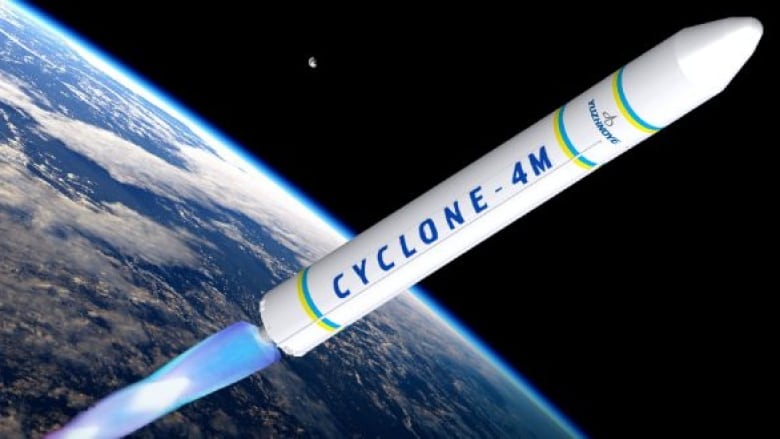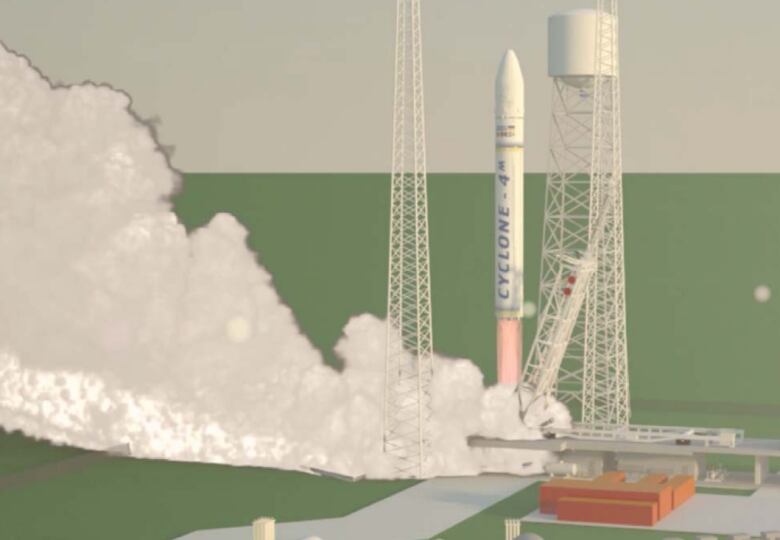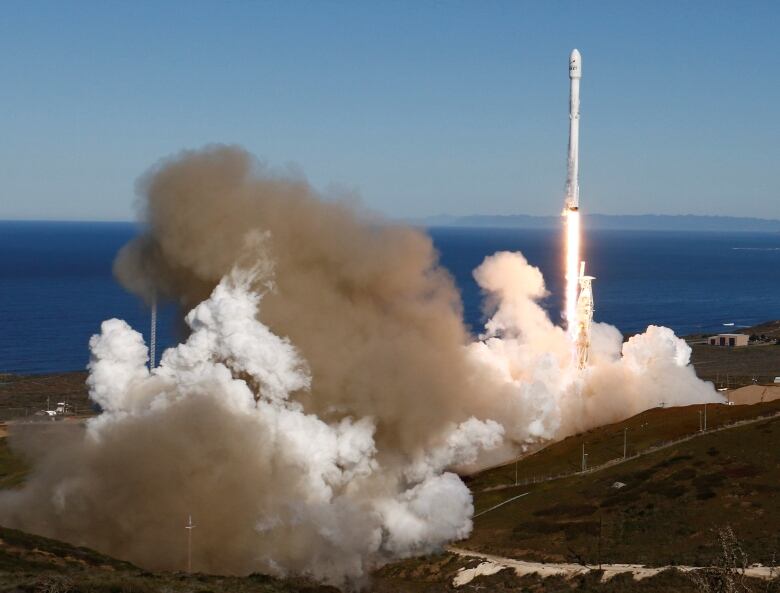Canso spaceport chemical spill could be 'disastrous,' warn experts
Government staffers say rocket launch site's environmental assessment lacking in analysis, evidence

Federal and provincial government staff are raising concerns about the potential impacton health and the environment of a proposed spaceport on the eastern tip of mainland Nova Scotia, with one staffer warning the project could result in ecological harm that would take centuries to repair.
Government staff made submissionsto Nova Scotia's Environment Department in response to anenvironmental assessmentof the Maritime Launch Services project. The assessment, prepared for the company by Strum Consulting, was described by a number ofreviewersas lacking analysis, information and evidence.
In one of the 25 letters received, an Environment Department staffer wrote any spill of hazardous material from the site "would destroy the impacted ecosystems with no chance of recovery for the next several hundred years."
The project would see Maritime Launch Services build a commercial launch site inCanso a fishing community with fewer than 1,000 residents andsend satellites into orbit. The project has already received support from the municipality.
Nova Scotia Environment MinisterMargaret Millersaid last week the environmental assessment, submitted in July,didn't contain sufficient informationfor her to make a decision on whether to approve the project. Millerhas given the company one year to provide additional information and studies.
StephenMatier, president and CEO of Maritime Launch Services, said the company was waiting to hear from the minister and would not comment beforehand.
'Disastrous' possibilities
Neil Morehouse, a managerin the Environment Department'sprotected areas and ecosystems branch, said in a submission the environmental assessment containedlittle to no mention of how an explosion, crash or major fuel leak would affect the nearbyCansoCoastal Barrens Wilderness Area (CCBWA).

"Soils here are very thin and because of cold wet climate, have taken centuries to form," he said."Any liquid spill cleanup would end up removing all soil to bedrock. The proposal suggests that a launch failure is very unlikely, but if it did occur inCCBWA, it would be disastrous."
The rockets would use kerosene and liquid oxygen for the first stage of the launch and nitrogen tetroxide along with unsymmetrical dimethylhydrazine, or UDMH, for the second stage.
The province's seniorhydrogeologistraised concerns over the use of UDMH, citingstudies that describethe chemical compound as a possible carcinogen that'stoxic to humans, fish andaquatic organisms. The submission noted UDMHis being phased out in the U.S. as well as most launch centres in Europe and Russia.
The letter also underscored concerns about the impact of normal operations, spills and launch failures on the municipal drinking supply "given the nature of the proposed propellants."
The Defence Department, in its submission, suggested an assessment becompleted on the impact of aUDMHspill.
Company offers assurances
The environmental assessment acknowledgespropellant spills could happen during transfer to or from the processing facility or during launch failure.
The company said if a spill happened at the processing facility, it would be controlled through catchment systems and holding tanks and "would not impact surrounding soils."
In a spill caused by a spacecraft crash or launch failure, the propellant would be collected and disposed of, withcontaminated soil "removed and treated as hazardous waste."

Chuck McKenna,manager of the Environment Department's resource management unit, notedthere's nothing in the assessment to indicate how the company would handle contaminants infractured bedrock, surface or groundwater.
Even if successfullyremoved, disposing of dangerous goods or contaminated water could be difficult because there's nowhere in Atlantic Canada to effectively treat some of the proposed substances, including hydrazine, saidBrent Baxter of the Environment Department's sustainability and applied science division.
Air quality concerns
Submissions to the Environment Department also raisedpotential air quality issues.
Johnny McPherson, who works in the department'sair quality unit, noted the combustion of kerosene and liquid oxygen emits black carbon, which is "harmful if inhaled," and other expected emissions increase ground-level ozone, "a pollutant that directly affects human health."
Health Canadasaid in its letter that it would be useful to see an example of how rocket launches could change air quality.
"This would be particularly relevant in the event of an accident/malfunction where fuel may be dispersed over a larger area, and given the potential toxicity of several of these compounds, may impact the local area," said the department'sletter.
The department noted that based on information in the report, noise levels won't be high enough to result in hearing loss in the general public.
Missing information
While the environmental assessment was expected to outline solutions topotential problems, Heather Cameron of the provincialDepartment of Lands and Forestry wrote that "in many instances, options for mitigation are completely missing in the document, or are only alluded to."

She addedthe assessment repeatedly defers its description of mitigation effortsto its environmental protection plan, which wouldonly be developed after the environmental assessment is approved.
"Please note that it is stated that [the] proponent 'should' undertake actions, but it is unclear whether the proponent 'will' undertake required actions," wrote Cameron.
Support from municipality
Not every submissionraised red flags about the project.The warden of the Municipality of the District of Guysborough wrote a letter voicinghis support for the spaceport.
"This project has the potential to provide significant benefits to a region that has been greatly impacted by the collapse of the cod fishery in the 1990s," wrote Vernon Pitts.
"We place our trust in the Nova Scotia regulatory system to complete its work in a timely fashion. We look forward to the development of this project and encourage its expeditious review and approval."
Global Affairs Canada questioned in its submission whether Maritime Launch Services'liability insurance would include the Crown as a beneficiary in the event that a foreign country makes a claim of damage from a space object.
The Canadian Space Agency declined to weigh in on the project.












_(720p).jpg)


 OFFICIAL HD MUSIC VIDEO.jpg)
.jpg)



























































































